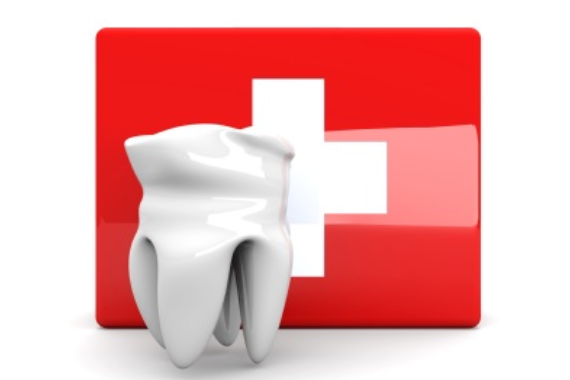Steps to follow in case of a Dental Emergency
Dental emergencies can strike unexpectedly, causing discomfort and anxiety. Whether it’s a sudden toothache, a broken tooth, or an accident that impacts your dental health, knowing what steps to follow in case of a Dental Emergency makes a huge difference. In the hustle and bustle of daily life, it’s easy to overlook the importance of preparedness for such situations. However, being equipped with the right knowledge and actions can alleviate pain, prevent further damage, and ensure timely treatment.
In this blog, we’ll delve into the crucial steps to follow in case of a dental emergency, empowering you to navigate these challenging situations with confidence and composure. From immediate first aid measures to seeking professional help, let’s explore how to manage dental emergencies effectively and safeguard your oral health.
So, before determining the steps to follow in a Dental Emergency, let us answer what a Dental Emergency is.

What is a Dental Emergency?
A dental emergency is any sudden and unexpected oral health issue requiring immediate attention and intervention from a dentist or oral healthcare professional. These emergencies can include severe toothaches, broken or knocked-out teeth, oral infections, abscesses, bleeding gums, and injuries to the mouth or jaw. Dental emergencies often involve acute pain, swelling, bleeding, or the risk of permanent damage if not addressed promptly. Recognizing the symptoms of a dental emergency and seeking timely treatment can help prevent complications and preserve oral health.
What are some Common Dental Emergencies?
Common dental emergencies include:
- Severe Toothache: Persistent and intense tooth pain indicates an issue such as an infection, abscess, or tooth decay.
- Chipped, Cracked, or Broken Teeth: Accidents, injuries, or biting down on hard objects causes teeth to chip, crack, or break, leading to pain and potential exposure of the inner tooth layers.
- Knocked-Out Tooth (Avulsed Tooth): Immediate dental attention is crucial if a tooth gets completely knocked out due to trauma.
- Loose or Dislodged Teeth: Teeth that become loose or partially dislodged from their sockets due to injury or trauma require immediate evaluation by a dentist to prevent further damage.
- Lost Dental Fillings or Crowns: Losing a dental filling or crown can expose tooth structures, leading to discomfort and an increased risk of decay or damage.
- Dental Abscesses or Infections: Infections or abscesses in the gums or teeth cause severe pain, swelling, and sometimes fever. Early treatment can prevent the spread of infection.
- Soft Tissue Injuries: Injuries to the lips, cheeks, gums, or tongue can result in bleeding, swelling, and discomfort. Proper wound care and evaluation by a dentist are essential for optimal healing.
- Orthodontic Emergencies: Issues with braces, such as broken wires or brackets, can cause discomfort and require immediate attention to prevent irritation or injury to the oral tissues.
Recognizing these common dental emergencies and seeking prompt treatment from a dental professional can help alleviate pain, prevent complications, and preserve oral health.
Signs Indicating the Need for Emergency Dental Care
In most emergency situations, swelling, bleeding, and severe pain are the primary indicators. If you observe any of these symptoms, it’s advisable to seek immediate assistance from a dentist. If you are in Stone Ridge, Virginia, contact Prime Family Dentistry for expert advice.
How to Manage Dental Emergencies?
In the event of a dental emergency, consulting with an experienced dentist is crucial for appropriate treatment. Visit your dentist promptly upon noticing any unusual symptoms, and rest assured that you will receive excellent professional care.
Toothache
- Rinse your mouth thoroughly with lukewarm water.
- Use dental floss to gently remove any leftover food particles that are stuck between teeth.
- If there’s external swelling, apply a cold compress to the cheek.
- Avoid placing painkillers directly against the gums near the affected tooth, as it may cause tissue irritation.
Chipped or Broken Tooth
- Save the broken piece if possible.
- Rinse the mouth and the broken piece with warm water.
- Apply a cold compress to the affected area if there’s bleeding, using a small piece of gauze until the bleeding stops.
- Visit your dentist promptly.
Lost Filling
- Place a small piece of sugarless gum on the cavity until you can see your dentist. Dental cement is also available over the counter.
Lost Crown
- Keep the crown safe until your dental appointment.
- For toothache relief, apply clove oil to reduce sensitivity.
- Attempt to slip the crown back over the tooth; most importantly, see your dentist as soon as possible.
- If you choose to reattach the crown all by yourself, use dental cement, toothpaste, or denture adhesive to coat the inner surface of the crown.
Broken Braces
- If a brace wire sticks out of its bracket, push it back with the eraser end of a pencil.
- Cover the wire end with orthodontic wax, a small cotton ball, or gauze if pushing is impossible.
- Avoid cutting the wire to prevent swallowing or inhaling it.
Abscess
An abscess, a type of tooth or gum infection, requires immediate attention from your dentist.
Try gargling with salt water several times a day for immediate but temporary relief.
Soft Tissue Injury
- Rinse your mouth with salt water.
- Apply a moist gauze piece to control bleeding.
- Additionally, use a cold compress for pain relief.
- Visit the best dentist in Burbank promptly for treatment.
How do you manage the Pain?
Taking immediate action is crucial during a dental emergency to ease pain and discomfort. Here are expert-recommended tips for managing pain:
- Rinse your mouth with lukewarm water to soothe the area and remove debris causing the pain.
- Take pain relieving medication like ibuprofen or acetaminophen to reduce.
- Apply a cold compress to the outside of your face near the affected area to numb it and reduce swelling.
- If the pain is severe, promptly consult a dentist for further treatment. They may prescribe stronger medication or recommend treatment options like root canal therapy or extraction.
Conclusion
Knowing the appropriate steps to take in case of a dental emergency can make a significant difference in safeguarding your oral health and well-being. From managing toothaches to addressing broken teeth or orthodontic issues, being prepared and acting swiftly can mitigate pain, prevent complications, and facilitate timely treatment.
Remember, your dental health is paramount, and prompt action during emergencies can save you from unnecessary discomfort and potential long-term consequences. By staying informed and proactive, you can confidently navigate through dental emergencies and ensure the best possible outcome for your oral health.
Trust Prime Family Dentistry in Stone Ridge, VA, for expert dental care and assistance during emergencies. Don’t wait until it’s too late – book an appointment today to receive personalized and prompt attention for your dental needs. New patients may reach us at (703) 214-9126, while all other callers can dial (703) 957-3536.
FAQ
What qualifies as a dental emergency?
Dental emergencies encompass various situations, including severe toothaches, broken or knocked-out teeth, oral infections, abscesses, bleeding gums, and injuries to the mouth or jaw.
How should I handle a dental emergency?
In a dental emergency, it’s crucial to remain calm and take immediate action. Rinse your mouth with warm water, apply cold compresses to reduce swelling, and seek professional dental care promptly.
What should I do if I experience a toothache?
If you experience a toothache, rinse your mouth with warm water, floss gently to remove any debris, and avoid placing aspirin directly on the tooth or gum. Consult your dentist for an evaluation and treatment.
How can I prevent dental emergencies?
While some emergencies are unforeseen, maintaining good oral hygiene, attending regular dental check-ups, wearing mouthguards during sports activities, and avoiding chewing hard objects can help prevent many dental emergencies.

